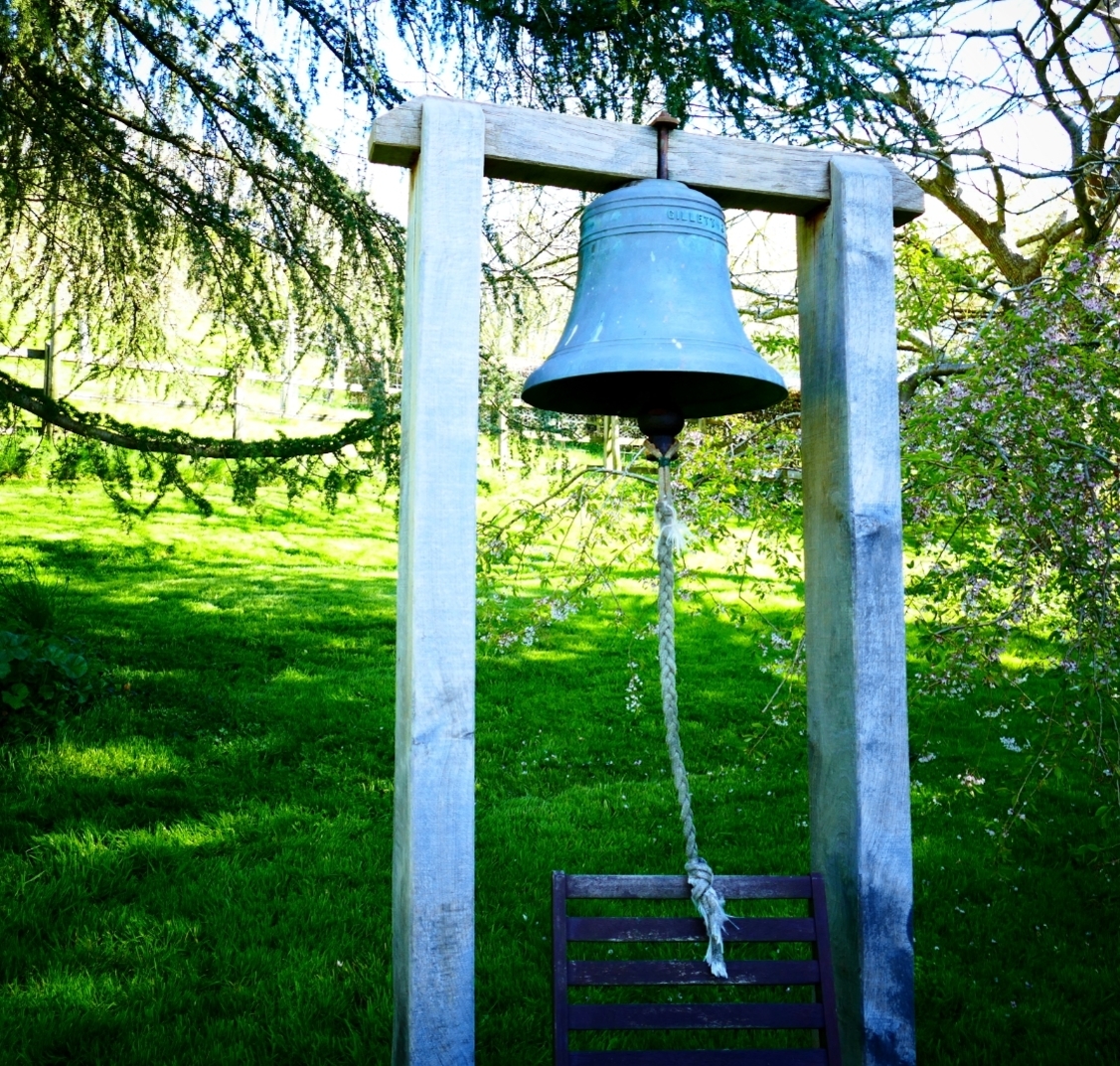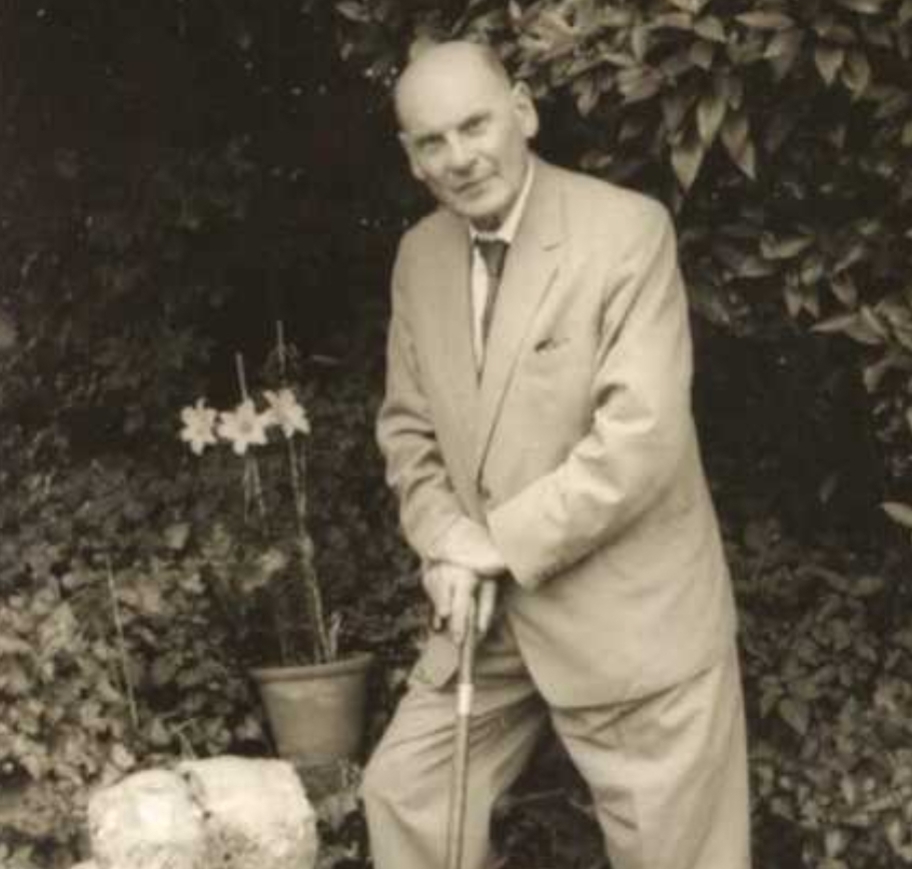

The Trust was founded by Wellesley Tudor Pole in 1959 as a charity and a non profit making organisation.

“Surely it is man’s mission to do all in his power to bring the ‘Golden Age’ of which the ‘Messenger’ speaks, nearer than seems credibly possible to our restricted vision. We should strive our utmost with this end in view, even if this end may seem remote and almost beyond the range of our present faith and understanding.
We can take both courage and solace from the fact that a fresh spiritual Impulse is now making itself felt in our midst and that to our Creator, working through the hearts and minds of men, all things are not only possible but are certain to be harmoniously fulfilled in due course, both in time and in Eternity.”
Wellesley Tudor Pole, Private Dowding
Wellesley Tudor Pole was born to Thomas and Kate Pole on 23rd April 1884 in Weston-super-Mare. He had two older sisters, Mary (b.1876) and Katharine (Kitty) (b.1882) and a younger brother, Alexander, while another sister Dorothy died in childhood. The ‘Tudor’ name came from his mother’s side of the family and his father Thomas grew Up on a farm near Williton in Somerset.
From an early age Wellesley was considered a little odd as he would recount his experiences of ‘seeing the colours of prayers’ rising up in the air in church. By the age of eleven, he later told Rosamond Lehmann, he felt more or less grown up and independent, while retaining a closeness to his sister Kitty. His school life was ‘a hellish experience’ and perhaps this is why he turned down university in order to help his father in the family grain business.
While working with the company Chamberlain, Pole and Co. in Bristol he had a clear vision of himself as a monk in Glastonbury Abbey and so at the age of eighteen he visited and established his life long link with Glastonbury and its environs, first visiting the Chalice Well in the Spring of 1904. Working closely with his sister Kitty and the Allen sisters, Janet and Christine, Tudor Pole then established a link with the blue bowl, which Goodchild had placed in a sluice at Beckery in Glastonbury, after purchasing it in Italy. The bowl was kept in an oratory at their house in Bristol until the outbreak of the first war when it went with Kitty to Letchworth. (for more information see ‘Chalice Well: The Story of a Living Sanctuary’ pages 44-48 (Chalice Well Press 2009) and ‘The Avalonians’ by Patrick Benham chapters 6&7 (Gothic Image 2006)).
As managing director of the flour, grain and cereal merchants who were engaged in Government work, Tudor Pole was exempt from military service but he felt he had to serve and joined the Royal Marines in November 1916. After obtaining a commission he sailed from Plymouth in November 1917, arriving in Egypt soon after.
Immediately engaged on the Palestine Front he was wounded on the 3rd December 1917 and taken to hospital in Cairo. The original inspiration for ‘The Silent Minute’ is to be found during the fighting in the mountains around Jerusalem in this brief period. Working out the rest of the war as an Intelligence Officer Tudor Pole was awarded the O.B.E. in the 1919 honours list and was also responsible for the intervention which saved the beleaguered leader of the Bahai faith during the war.
By December 1919 he had established his own firm, W. Tudor Pole and Co. at 61, St. James St. in London, which was to become a hive of business and spiritual activity between the wars with links to New York, Paris, Constantinople, Alexandria, Haifa and Russia. He would never finance or be connected with any business activity unless it was to be of direct benefit to humanity. During this time, as he would continue to do, Tudor Pole produced a considerable literary output which can be summarised as the five books written between 1915 and 1968, three booklets between 1951 and 1961 and nineteen pamphlets between 1906 and 1968.
Through Tudor Pole’s efforts during the second world war the Silent Minute was established with the help of the Government and the B.B.C. from 10th November 1940 as a signal for a minutes silence at 9 p.m. each evening. The practice continued on the B.B.C. until the mid 1950’s but sustains as an act of observance through to this day. As Tudor Pole wrote,
“There is no power on earth that can withstand the united cooperation on spiritual levels of men and women of goodwill everywhere. It is for this reason that the continued and widespread observance of the Silent Minute is of such vital importance in the interest of human welfare.”
Wellesley Tudor Pole 1960

Undoubtedly the creation of The Chalice Well Trust was one of Tudor Pole’s greatest achievements. Alice Buckton had owned and protected the property from 1913-1944 but then it had fallen quietly into private hands again. Fifty-five years after his first visit came the opportunity to purchase the Chalice Well property and to create a Trust to preserve and safeguard it for the public good in perpetuity. The Chalice Well Trust was founded on 1st.January 1959 at a meeting in London with the financial support of some of his associates and friends. For nine years, while living in Hurstpierspoint in west Sussex Tudor Pole was able to guide and anchor the energies required to establish and sustain the Trust, while also bringing through the vision of The Upper Room in Little St. Michaels retreat house.
At the time of his death on September 13th 1968 when “he returned once again to his own plane of spiritual consciousness” one of the then Trustees, Martin Israel, wrote:
“Of the amazing psychic and spiritual gifts of T.P. I need not write. I know that others will be able to furnish specific examples, and his books, notably ‘Private Dowding’, ‘The Silent Road’, ‘A Man Seen Afar’, and his swan-song ‘The Writing On The Ground’ are unique in their portrayal of active seership – as opposed to the passive mediumship bringing down teaching from higher spheres. On a more worldly level I would draw special attention to his normality. As is well known he was a soldier, a businessman, a traveller and a friend of many famous political figures.”
On St. Michael’s Day, 29 September 1968 services in memory of Tudor Pole were taken by Sir George Trevelyan at Chalice Well. Sir George said:
“…that holy spot which T.P. had personally been responsible for saving and redeeming as a place of pilgrimage. His influence for good in our time is probably far greater than any of us can possibly know.”
Interesting associated sites.
The Albion site was created in 2017-18 by Paul Fletcher and Kevin Redpath from a donation by the Wrekin Trust to the Chalice Well Trust. The site explores the essential ideas contained in British spirituality. It focusses on the central role played by the forerunners such as Wellesley Tudor Pole, Alice Buckton, Ronald Heaver and Dion Fortune and on the emergence of many positive forward thinking organisations. There are many informative links to sacred sites, publications, essays, maps and other interesting websites. It is easy to navigate and has been much praised.
This is an archived site created by Palden Jenkins that contains an online archive of Sir George Trevelyan’s life and work. With copious contributions from many who knew and worked with Sir George it is a complete overview of this fascinating pioneer’s journey from his days of educational innovation at Attingham Park through to his later inspirational work with the Wrekin Trust and his many talks.
This is a more recent site developed after the ending of the Wrekin Trust by friends of Sir George subtitled Awaken your Soul. It is designed to allow the exploration of the life and values of Sir George through his many publications, his ideas and principles and tells us how these values can be brought into the present time for the good of humanity.
(All three sites are administered by the Chalice Well Trust)


